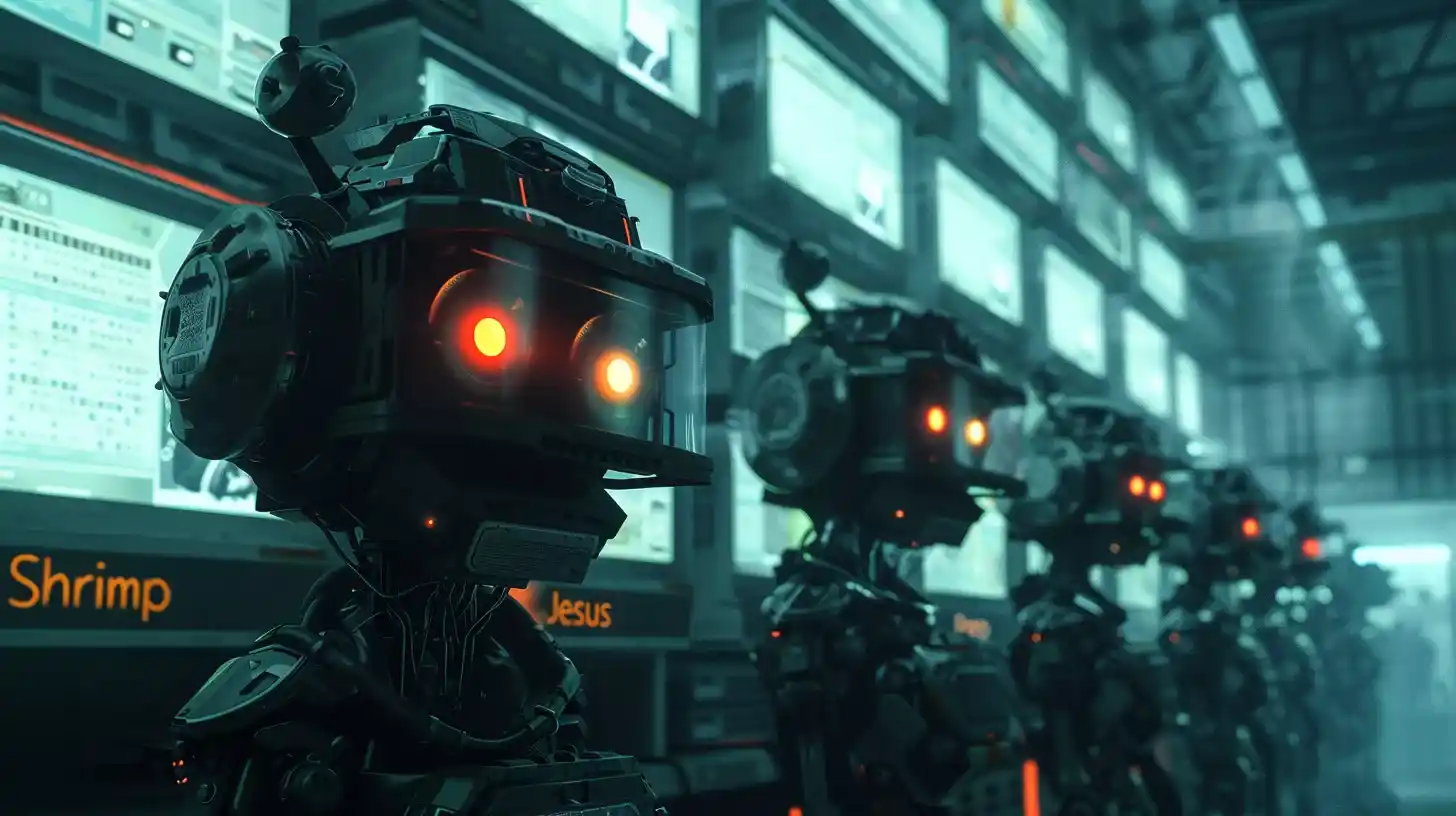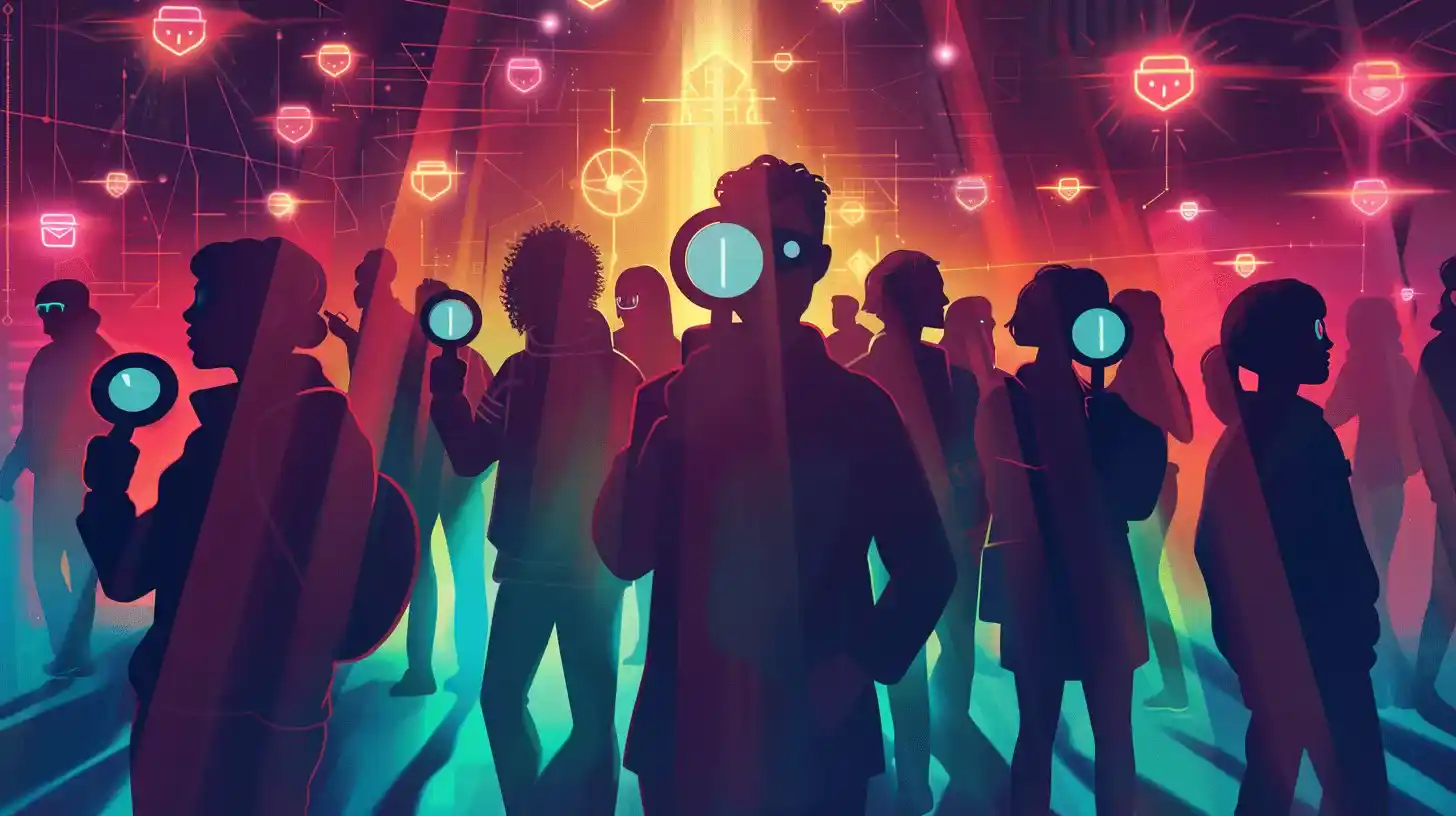Table of Contents
The internet, once a vast, untamed frontier of human connection and creativity, might be undergoing a silent and unsettling transformation. According to the “dead internet theory,” our beloved online world is increasingly dominated by bots and artificial intelligence (AI).
This shift threatens to reshape our online experiences in ways we may not even realize. Take the bizarre meme “Shrimp Jesus,” featuring AI-generated crustacean-Christ hybrids—this strange phenomenon could be just the beginning of something much larger.
The Rise of the Machines: Bots and AI in Social Media
Picture a world where your social media interactions are no longer driven by genuine human engagement. According to the dead internet theory, this is the reality we’re creeping towards. AI-powered bots are flooding platforms with mass-produced content designed to harvest clicks, likes, and comments.
These “engagement zombies” inflate metrics and distort online trends. The absurdity of memes like Shrimp Jesus is a symptom of this phenomenon. However, lurking beneath this absurdity is a more sinister potential.

From Shrimp Jesus to Sophisticated Propaganda: The Dark Side of Engagement Farming
While harmless memes like Shrimp Jesus might seem like quirky digital oddities, the dead internet theory suggests a darker agenda. What if these bot-driven accounts are part of a grander scheme of social manipulation? Inflated follower counts can lend credibility to fake news and propaganda. Imagine a vast army of bots amplifying disinformation campaigns, swaying public opinion with manufactured outrage or artificial support.
Disinformation Goes Viral: How Bots Are Poisoning the Social Media Well
The dead internet theory isn’t just a dystopian fantasy. Research has shown that bots significantly influence the spread of misinformation on social media. From political narratives to major news events, bots can amplify or distort reality, eroding trust and fueling societal division. Recent pro-Russian disinformation campaigns, for instance, have revealed the chilling efficiency of bot-driven propaganda.
A Fight for the Future: Can We Reclaim the Human Internet?
The dead internet theory serves as a stark reminder of our online world’s vulnerabilities. With nearly half of all internet traffic potentially originating from bots, distinguishing between real and fake becomes increasingly challenging. Social media giants have a responsibility to combat bot activity, but the burden also falls on us, the users.

We must approach online content with a critical eye, questioning sources and narratives. The true power of the internet lies in its capacity for human connection. Let’s ensure the machines don’t drown out the voices that matter.
The Human Touch: Reclaiming Our Online Oasis
The dead internet theory paints a bleak picture, but it doesn’t have to be our future. Here’s how we can reclaim the human internet:
- Become a Media Detective: Develop a healthy skepticism. Don’t take everything at face value. Scrutinize sources, check for inconsistencies, and utilize fact-checking websites.
- Seek Out Diverse Voices: Algorithmic bubbles can trap you in echo chambers. Follow accounts with different perspectives, even those you disagree with.
- Engage with Authenticity: Prioritize genuine interaction. Leave thoughtful comments, share meaningful content, and engage with real people, not bots.
- Support Human-Centric Platforms: Explore platforms that prioritize human connection over virality. Consider smaller, niche communities that foster genuine dialogue.
- Demand Transparency: Hold social media giants accountable. Advocate for stricter regulations against bot activity and opaque algorithms.
By adopting these practices, we can actively shape the future of the net. Let’s turn the tide against the “dead internet” and ensure the online space remains a vibrant hub for human connection, creativity, and genuine information.
The internet wasn’t built by bots; it was built by dreamers, activists, and everyday people yearning for connection. Let’s honor that spirit and fight to reclaim the digital commons, one thoughtful interaction at a time. The net may be changing, but the human desire for connection will always endure.